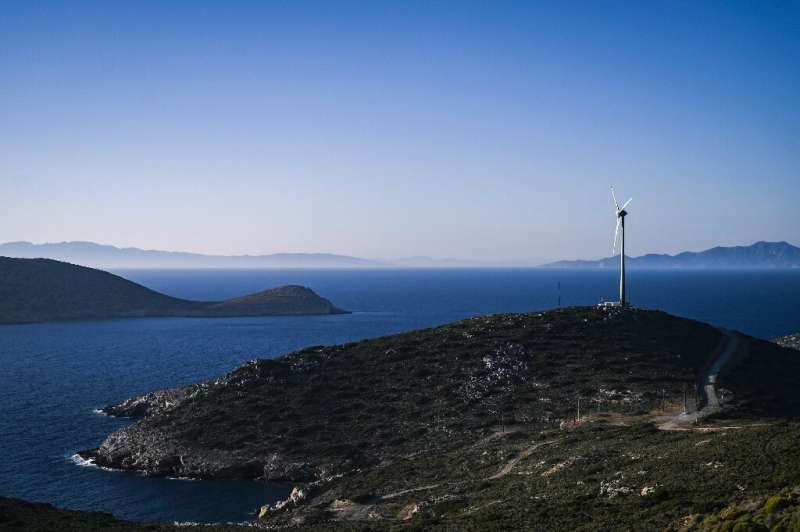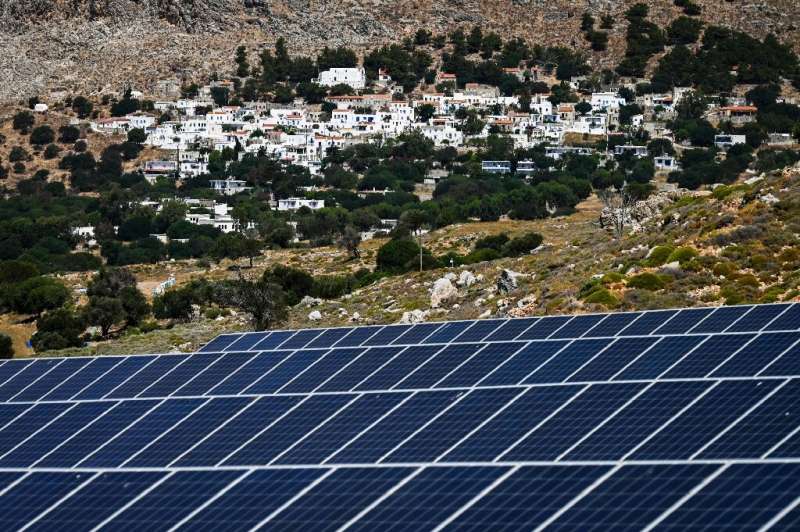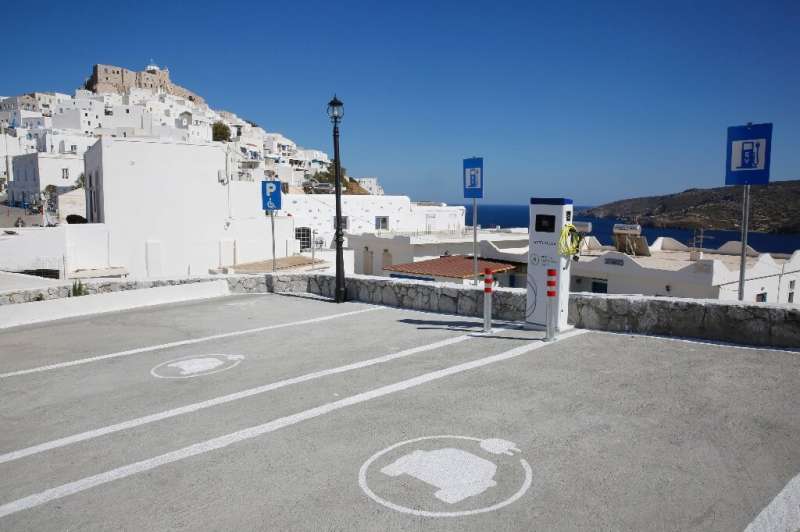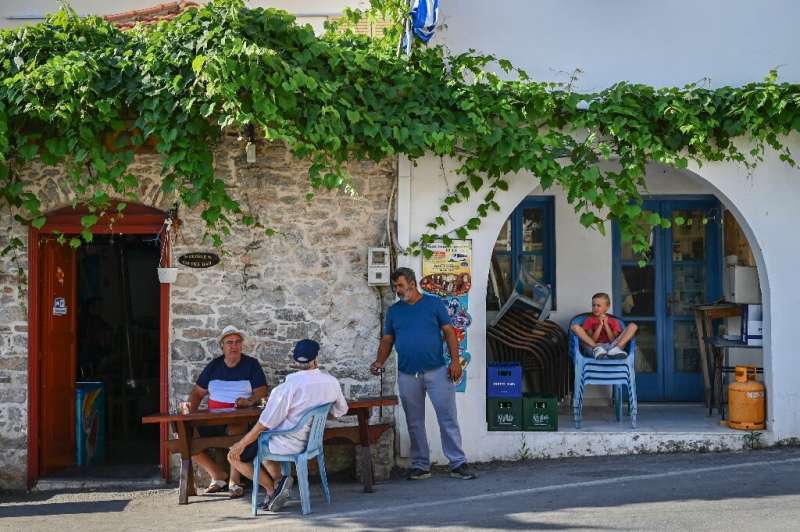
In the tranquil Greek island of Tilos, a wind turbine hums over a silvery sea while scorching sun rays hit a hill lined with solar panels.
The small island of around 800 inhabitants is the first island in the Mediterranean to generate almost all of its electricity from renewable sources under a pioneering project launched in 2018.
Just 65 square kilometres (25 square miles) in size, Tilos last week was one of three islands awarded EU prizes for clean energy transition, alongside Denmark’s Aero and Spain’s El Hierro, part of the Canaries group.
Connected by submarine electricity cable to Kos, a larger neighbouring island in the southeastern Aegean Sea, Tilos has no shortage of sun and wind to draw upon.
It is 100 percent energy independent for most of the year, though that rate dips to 70 percent during the summer due to the higher energy demands of the tourism season, said Mayor Maria Kamma.
“This is the solution, especially for the small islands of our country,” Kamma told AFP.
Spyros Aliferis, an engineer with Greek renewable energy specialists Eunice Energy, said Tilos has the country’s first hybrid power station.
“It’s hybrid because it combines more than one renewable energy source, wind and sun,” he told AFP.

Tilos has no factories to speak of, just small taverns and shops—a low energy demand that made its transition to renewables easier.
The island used to get all of its electricity from a diesel oil power station on Kos.
Some locals are excited by the green initiative, which is backed by 11 million euros ($13 million) under the EU’s Horizon 2020 competitiveness initiative, plus another four million from Greek private investors.
‘This is the future’
“This is the future. It is good that green energy starts from such small islands, for us to be able to be independent and to free ourselves from (fossil fuels),” said Vassilis Oikonomou, a 46-year-old snack bar owner.
Others are more reserved.
“It is still early, an effort is made and we all applaud that,” said cafe owner Prodromos Trikilis.
He said locals have soldiered through power surges and blackouts to get the project going, though they are less frequent as the grid is less under pressure now with the hybrid system.

“But if you look at it in the long run how things will be, it is worth it to be patient,” he said.
The wind turbine and solar panels, donated by Eunice Energy, have a capacity of 800 kilowatts and 400 kilowatts, respectively.
“The project has been working perfectly for two years,” said Aliferis, pointing to the storage batteries.
“This demonstrates that a small island can operate just on renewable energy,” he said.
Other isles to follow
To the west, the island of Astypalea has taken up the challenge, hoping to cover 70 percent of its energy needs with renewables within three to four years, said Kostas Fragkogiannis, a deputy foreign minister who initiated the government project.
In early June, Prime Minister Kyriakos Mitsotakis visited the butterfly-shaped island of 1,300 to promote a similar hybrid project aimed at cutting carbon dioxide emissions by 70 percent and energy costs by 25 percent.
The 10-million-euro project—including six million provided by the Greek state—is partly funded by German automobile giant Volkswagen and aims to replace Astypalea’s cars with electric vehicles.

Wind turbines and solar panels will also help the islanders ditch their home diesel generators, their sole source of energy.
“In our eyes, it is a model for the world”, Fragkogiannis said.
The main opposition Syriza party’s local chapter criticised the move as a Volkswagen “advertising campaign” with Astypalea serving as “exotic scenery.”
According to sources at the Greek ministry of energy and environment, there are similar electric vehicle plans at Chalki, a tiny island west of Rhodes, in collaboration with French auto giant Citroen.
This 26-kilometre island has also been earmarked for a hybrid power station project, with European funds. The agreement will be unveiled on Friday, a government source told AFP.
Volkswagen and Citroen are showing a greener side after they were recently charged in France in connection with the “dieselgate” emissions cheating scandal.
Other islands will be involved in the government project, though energy ministry sources said that it would only involve those not attached to the national grid, further away from Athens.

